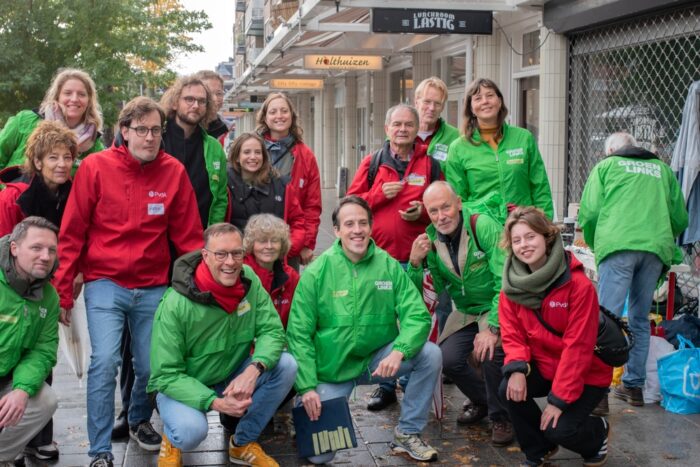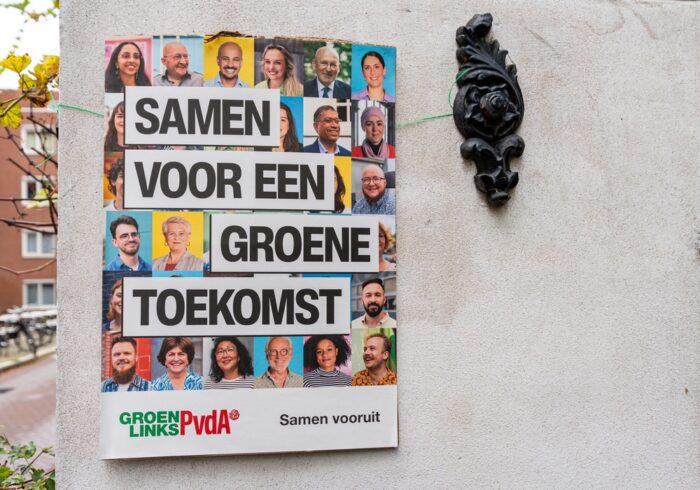The Progressive Post
The revenge of the countryside

The Austrian election results show that citizens have grown tired and weary of what they believe is a petrified political system. The far right took advantage by reframing the ideal version of how democracy should work – this is both bad news for progressives and indicates where a future strategy could begin.
The parliamentary election in Austria has left the progressive side of the country in a state of shock. Although surveys had indicated an electoral victory for the far-right FPÖ for the past one and a half years, it still felt unthinkable until the first projections were published on election day. Whereas the Austrian Social Democrats (SPÖ) basically stalled at their 2019 result (gaining about 20,000 votes), the governing conservative people’s party (ÖVP) drastically lost voters to the radical right. Together with the mobilisation of a significant number of former non-voters, this created the base for the first national win of the FPÖ, who turned out at 28.8 per cent of the votes.
The current tide of right-wing triumphs at the voting booth in European countries and beyond has multiple reasons, and each country’s context shows a different constellation of these. The case of Austria is indicative of – at least – three, which provide important lessons for understanding the current attraction of the far right among citizens of many countries and for a possible future progressive counterstrategy. Here, I want to focus on disparities between urban and rural voters, the FPÖ’s 2024 campaign as well as the fallout from the pandemic.
Firstly, election results show a huge disparity in far-right voting between the countryside and urban or metropolitan areas. Whereas throughout all Austrian cities, Social Democrats, Greens and liberal ‘Neos’ secure an absolute majority of votes, conservatives and the far right hold more than 60 per cent of the votes in the countryside. The picture looks similar if we zoom in on disparities in educational levels: whereas Social Democrats show no big differences between owners of a high school degree and those without, the far right scores almost 35 per cent among voters without but only 16 per cent among those with a high school degree. Both indicators direct our attention to a core emotion that drives support for the far right: dissatisfaction, anger, feeling disconnected or denied the deserved recognition. People who say they are somewhat or very dissatisfied with the government or see a very negative development in Austria have voted for the FPÖ with a disproportionately high likelihood. These feelings are often widespread among people in the countryside – because they feel neglected by the political and economic elites of the country or because they experience how younger people seek education and perspective elsewhere and move to the city (leaving local companies, houses, taverns and so on deserted). The perception that a cosmopolitan and international Vienna patronisingly dictates which lifestyle is considered superior is widely found (and rejected) in rural Austrian areas. What is more, people in the countryside and citizens with less education share the impression that public policies prioritise other groups in society – be it higher-educated professionals or migrants. These groups, in particular, have come to the perception that politicians have forgotten about them and that liberal representative democracy is skewed towards well-off urban professionals as well as migrants and refugees. In these elections, the FPÖ presented an opportunity to take a credible electoral revenge. The further away from the city, the more likely voters supported the far right.
Secondly, the FPÖ’s electoral campaign answered directly to these emotions – in a brilliantly targeted and strategically empowering way. Other than in previous campaigns, the 2024 national campaign was not about promoting fear and hatred, but was built on three pillars:
- It was void of any programmatic statement creating a perfect empty signifier that could be filled with what citizens thought the FPÖ might be. Throughout the last years, the FPÖ, and Herbert Kickl as party leader, had created a vague sense of radicality that promised to shake up the Austrian status quo. This enabled them to stay clear of any programmatic discussion in their campaign, as any right-leaning citizen could read into the party what they desired. No party campaign poster made any programmatic claim.
- Furthermore, the campaign fully focused on the party leader, Herbert Kickl. This was because Kickl had radicalised his speeches and terminology in the past and now presented himself as the personalised promise for breaching the Austrian status quo, as opposed to all other parties. But it was also a learning of the party’s own past. In many cases the FPÖ had painfully experienced how many scandals had been caused by their own functionaries, be it through corruption or public expressions of nazi sympathies. Other than previous party leaders who had prioritised the ‘bon vivant sides’ of life at times, Herbert Kickl had framed his motivation and career as an ascetic Spartan struggle for a far-right transformation. Tailoring the campaign to one candidate reduced the risks of scandals that could endanger the party’s success.
- Lastly, and most importantly, the campaign had focused on the FPÖ and its leader Kickl as a mere vessel of the people’s will by making use of messianic and Christian vocabulary. “Your will be done” was a core slogan on the posters, reframing democracy as the sole realisation of a popular will. “You are the master, and I am the tool” another. “The only one on your side” a third. This way, the FPÖ promoted a positively empowering and liberating message to the voters: no parliamentary equalisation of interest, no compromise, no negotiations, but the pure and empowering reflection of the popular will as a reframed democracy, that was attractive especially to those that felt dissatisfied and neglected.
Thirdly, four years after the pandemic, we can see how the different perceptions of lockdowns and vaccination are (still) shaping national politics and party systems. Where vaccination levels and acceptance of lockdown policies were low, the far right prevails today. Experiences of pandemic policies led to (and were strategically framed as) the experience of being let down and neglected by a central government driven by an urban and cosmopolitan perspective. The experiences people had during the pandemic fed into the discontent and the perception that elected representatives were “not caring” about their daily lives. This was the message Herbert Kickl had been hammering home for years, and it stuck with an important part of the Austrian countryside.
Ultimately, the FPÖ collected those parts of the Austrian society that had shown sympathy for far-right positions since the 1990s. For the first time, it managed to gather almost the whole right-wing community behind one party (as opposed to a part voting for the Christian-conservative ÖVP). Viewed this way, the elections did not profoundly shake up the established political camps.
To go forward, progressives must learn the important lesson that credible and plausible positive and empowering messages mobilise far more than fear or hatred. Even if this empowerment is driven by polarisation and conflict. Giving many different groups of citizens the perception that voting actually positively empowers and leads to a desired change is key – not uniquely focusing on preventing a far-right victory (which is, of course, a democratic imperative). If a far-right party is considered positively mobilising, liberating and empowering by many voters, progressives will have to deeply self-reflect on how they can promote a positive and democratising message – and to whom exactly that shall appeal.
Photo credits: Shutterstock.com/Spitzi-Foto




